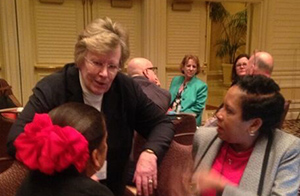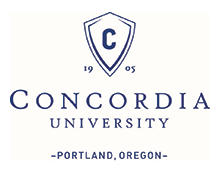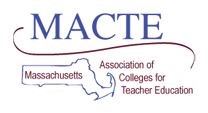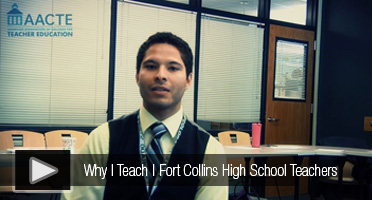14 Apr2016
By David Hough
In February, the Louisiana Department of Education hosted representatives from six states in the Council of Chief State School Officers’ Network for Transforming Educator Preparation (NTEP). Formed in 2013, this aligned action network brings together state chiefs and their education agency staff who are committed to activating key policy levers around licensure, program approval, and data as they transform educator preparation in their respective states. As a representative from the Missouri NTEP team, I joined colleagues from five states—Georgia, Massachusetts, New Hampshire, Oklahoma, and Washington—on the visit to Baton Rouge to attend Louisiana’s Believe and Prepare Community Meeting and learn from the work of practitioners, programs, and districts across Louisiana leading efforts to improve educator preparation.
05 Apr2016
By Amanda Lester

Facilitator Angela Sewall talks with participants in the Wallace-sponsored preconference event
Prior to the start of the 68th Annual Meeting, AACTE hosted a daylong workshop titled “Preparing Tomorrow’s Leaders Through School-University Partnerships Educational Leaders Preconference,” sponsored by The Wallace Foundation. The event was attended by more than 125 PK-12 and higher education leaders from across the nation, including school-university partners who attended together with the goal of strengthening their collaboration in principal preparation programs.
The event agenda featured a series of presentations and interactive PK-24 “table talk” discussions, focused on examining aspects of clinical practice and effective partnerships to advance principal preparation. Participants explored topics such as these:
28 Mar2016
By Rodrick Lucero
 I recently had the opportunity to visit St. John’s University in New York City at the invitation of Dean Michael Sampson. Witnessing a high-functioning clinical partnership in action was both inspiring and reassuring, providing a concrete glimpse into the terrific work being done around the country to prepare high-quality teachers.
I recently had the opportunity to visit St. John’s University in New York City at the invitation of Dean Michael Sampson. Witnessing a high-functioning clinical partnership in action was both inspiring and reassuring, providing a concrete glimpse into the terrific work being done around the country to prepare high-quality teachers.
My visit began at P.S. 101 in Queens, a St. John’s partner school. There, I met with university-based instructor Liz Chase, Department Chair Judith McVarish, Assistant Principals Laura Fahey and Irtis Gonzalez, and Principal Monique Paniagua. The school was bustling with youngsters greeting friends and teachers exuberantly as we made our way to the principal’s office. The joy and laughter filling the hallways showed that the students were excited about being at school.
05 Feb2016
By Sharon Robinson
Have you tried walking around with just one eye open? It’s tough: Your field of vision is limited; your balance suffers; you lack depth perception. Our brains need a variety of signals to bring the world into focus—and of course, this holds true not only for eyesight, but for our comprehension of just about everything.
Educator preparation is no exception. To help us meet the demands of professional practice, we form partnerships that span varying perspectives. One-dimensional views issued from the academy are as unhelpful as those emanating from the state house. But we find meaning and make progress on the tough questions when we tackle them from many angles at once, embracing complexity as an element that is essential to moving forward.
AACTE’s upcoming Annual Meeting—a convening primarily for teacher educators—will bring in these key viewpoints with significant participation from the world of practice and beyond. Beginning with preconference events and running through sessions large and small, this conference will provoke new insights on problems of practice through multidimensional views.
02 Feb2016
By Melvin Bogard and Kristin McCabe
 Ed Prep Matters is featuring “Stories of Impact” to showcase AACTE member institutions with educator preparation programs that are making a positive impact in their communities and beyond through innovative practices. We are committed to sharing members’ success stories and encourage you to do the same.
Ed Prep Matters is featuring “Stories of Impact” to showcase AACTE member institutions with educator preparation programs that are making a positive impact in their communities and beyond through innovative practices. We are committed to sharing members’ success stories and encourage you to do the same.
In one of the most impoverished neighborhoods of Portland, Oregon, a flourishing partnership between Concordia University and the PK-8 Faubion School has spawned ambitious plans for a new model of education to help disenfranchised students and the whole community.
01 Feb2016
By Shane P. Martin
The views expressed in this post do not necessarily reflect the views of AACTE.
With the signing of the Every Student Succeeds Act (ESSA) in December 2015, there was an intentional shift in power from the federal government to the states when compared with its predecessor, the No Child Left Behind Act. There is great value in having more autonomy and accountability at the state level, and in many ways California has been ahead of this curve in terms of a strong statewide approach that focuses on local control and multiple measures of effectiveness. Under the leadership of California Commission on Teacher Credentialing Chair Linda Darling-Hammond, the state has forged a new path around program quality and assessment, revising its policies and practices to focus on outcomes instead of inputs. In many ways, this shift anticipated what was put into law with ESSA.
19 Jan2016
By Bahati Banks and Angela Turk
 Ed Prep Matters is featuring “Stories of Impact” to showcase AACTE member institutions with educator preparation programs that are making a positive impact in their communities and beyond through innovative practices. We are committed to sharing members’ success stories and encourage you to do the same.
Ed Prep Matters is featuring “Stories of Impact” to showcase AACTE member institutions with educator preparation programs that are making a positive impact in their communities and beyond through innovative practices. We are committed to sharing members’ success stories and encourage you to do the same.
It’s no secret that Georgia, like many states throughout our nation, struggles to recruit highly qualified teachers committed to serving students in high-need schools in urban and rural communities—especially in math, science, and special education. When you take into consideration the state’s explosive population growth over the last several years, one-third of new teachers leaving the profession within 3 to 5 years, and a large number of retiring teachers, it is imperative that institutions responsible for teacher preparation work together to find a solution to the staffing crisis.
11 Jan2016
By Jerrica Thurman
To discuss Nevada’s persistent teacher shortages and what local educator preparation providers (EPPs) are doing about it, AACTE will partner with member institutions for a press conference in advance of the 68th AACTE Annual Meeting. The event will be held Monday, February 22, at 2:00 p.m. PST on the campus of the University of Nevada, Las Vegas.
Severe staffing shortages in Clark County, Nevada’s largest school district, have been making national headlines and spurring emergency policy changes to boost numbers in the local teaching workforce. The press conference will address how the state’s EPPs, and those in similar contexts around the country, are addressing the crisis.
Officials from Clark County School District, nearby university-based colleges of education, and AACTE will discuss factors contributing to the local shortage as well as efforts to alleviate it. The following panelists have been confirmed to date:
- Staci Vesneske, Former Chief Human Resources Officer, Clark County School District, on special assignment to the superintendent’s office
- Kim Metcalf, Dean, College of Education, University of Nevada, Las Vegas
- Kenneth Coll, Dean, College of Education, University of Nevada, Reno
- Dennis Potthoff, Dean, School of Education, Nevada State College
- Thomas Reagan, Dean of Arts and Sciences, Great Basin College
- Mark LaCelle-Peterson, AACTE Senior Vice President for Policy and Programs
05 Jan2016
By Deborah Koolbeck
On December 21 and 22, the U.S. Department of Education held webinars on the new Every Student Succeeds Act (ESSA), the law that reauthorized the Elementary and Secondary Education Act (ESEA). Click here to access slides from the webinars, which included some timelines and initial information about the transition from the framework of the No Child Left Behind Act to the new framework of ESSA.
I recommend that you review the Department’s slides to support and enhance your program’s partnerships by giving you a sense of what your state education leaders and PK-12 partners will be experiencing over the coming months and year(s). In particular, consider the implications of ending the waivers (referred to in the webinar as ESEA flexibility or ESEA waivers) as of August 1 of this year.
04 Jan2016
By Sharon Robinson
On December 10, after many painful years of wrestling with the heavy-handed No Child Left Behind Act and state waivers that were often more prescriptive than the law itself, educators finally got a new federal law governing PK-12 education. Its replacement, the Every Student Succeeds Act (ESSA), promises to return power to the states, reduce accountability burdens, and broaden the scope of support for students with the greatest needs. I join my fellow educators around the country in celebrating these improvements.
Nonetheless, there are lemons lurking among the plums in the new ESSA. This law contains more concessions to reformist entrepreneurs and venture philanthropists than many of us would like. For example, one provision in Title II allows states to create charter-like “academies” for preparing teachers and principals for high-need schools—an idea that has been debated for several years and widely opposed by education organizations. Now that it is part of the law, however, we will do well to heed Maya Angelou’s advice: if you can’t change it, change the way you think about it. So let’s celebrate the plums and then get busy making lemonade.
21 Dec2015
By Deborah Koolbeck
On December 17, Senator Jack Reed (D-RI) with original cosponsor Senator Bob Casey (D-PA) reintroduced the Educator Preparation Reform Act (EPRA). In addition, we expect that Representative Mike Honda (D-CA) will reintroduce EPRA in the U.S. House of Representatives early next year. We appreciate the continued support from both Senator Reed and Representative Honda on strengthening teacher preparation programs in the Higher Education Act (HEA), and we are pleased to see Senator Casey supporting EPRA on introduction as well this congress.
15 Dec2015
By Kathleen McNamara

Political advocacy was the focus of much work this fall for the Massachusetts Association of Colleges for Teacher Education (MACTE). The national attention to teacher preparation policy, from the reauthorization of the Elementary and Secondary Education Act to the proposed teacher preparation program regulations, inspired our state chapter to respond in a big way. We were—and are—determined to tell our story.
As a first step, the MACTE Executive Board created a “take home document” to educate our elected officials, highlighting some of the current work of member institutions. We pointed out initiatives and programs that were specifically developed to meet the greatest needs of our PK-12 partners and, ultimately, the needs of the students in the commonwealth. To compile this document, we put a call out to all of our member institutions to tell us what they were doing across five main focus areas:
01 Dec2015
By Guneev Sharma
To help you tell your story, AACTE is hosting a three-part webinar series this fall titled “If You Don’t Say It, Who Will?” which offers strategies for how to engage your internal networks and PK-12 partners as well as how to be sure the media and other audiences hear your messages. Won’t you join us in our ongoing campaign to debunk myths about educator preparation and teacher quality?
The first webinar in the series ran November 16, as dozens of you tuned in for “If You Don’t Say It, Who Will? Engaging Internal Networks to Tell Your Story” led by AACTE Director of Marketing and Communications Jerrica Thurman. This event taught participants how to create engagement and communication within their institutions to build a stronger channel for promoting the meaningful work happening in their educator preparation programs. Thurman also shared strategies for recruiting students, faculty, communication officers, and others to spread the word about the impact their program is making. In addition to discussing how to develop dynamic key messages and to identify news worthy to share, Thurman walked participants through the steps to develop a successful communications strategy:
17 Nov2015
By Laurie A. Henry and Cindy Diehl Yang
The AACTE Clinical Practice Commission (CPC) has been working over the last 6 months to examine the state of clinical practice in educator preparation. With a charge to develop a white paper that provides a common understanding of effective approaches to field experiences and clinical practice, members of the CPC met for a 2-day working session in Washington, DC, in August.
Members of the commission, who represent institutions of higher education, PK-12 school districts, and professional associations, formed workgroups around the core topics that will provide a foundational structure for the white paper: literature review, foundations of theory, foundations of practice, lexicon, and current context and policy background.
17 Nov2015
By Christine DeGregory

If you have been inspired by the previous Research-to-Practice Spotlight videos featuring the robust partnership between Colorado State University (CSU) and the Poudre School District (PSD) in Fort Collins, don’t miss the final mini-installment in the series, in which various teachers at Fort Collins High School share their passion for teaching. Below, Christine DeGregory reflects on what she witnessed during her visit with the partners last spring.
I’m a firm believer in the power of clinical practice—particularly clinical practice supported by a professional development school model. I had heard many wonderful things about the special partnership that Colorado State University (CSU) had nurtured with the Poudre School District (PSD), but having the opportunity to talk to partnership members and see their work in action reaffirmed to me that some common approaches to clinical practice can be successfully reimagined.








 I recently had the opportunity to visit
I recently had the opportunity to visit  Ed Prep Matters is featuring “Stories of Impact” to showcase AACTE member institutions with educator preparation programs that are making a positive impact in their communities and beyond through innovative practices. We are committed to sharing members’ success stories and encourage you to do the same.
Ed Prep Matters is featuring “Stories of Impact” to showcase AACTE member institutions with educator preparation programs that are making a positive impact in their communities and beyond through innovative practices. We are committed to sharing members’ success stories and encourage you to do the same. Ed Prep Matters is featuring “Stories of Impact” to showcase AACTE member institutions with educator preparation programs that are making a positive impact in their communities and beyond through innovative practices. We are committed to sharing members’ success stories and encourage you to do the same.
Ed Prep Matters is featuring “Stories of Impact” to showcase AACTE member institutions with educator preparation programs that are making a positive impact in their communities and beyond through innovative practices. We are committed to sharing members’ success stories and encourage you to do the same.
